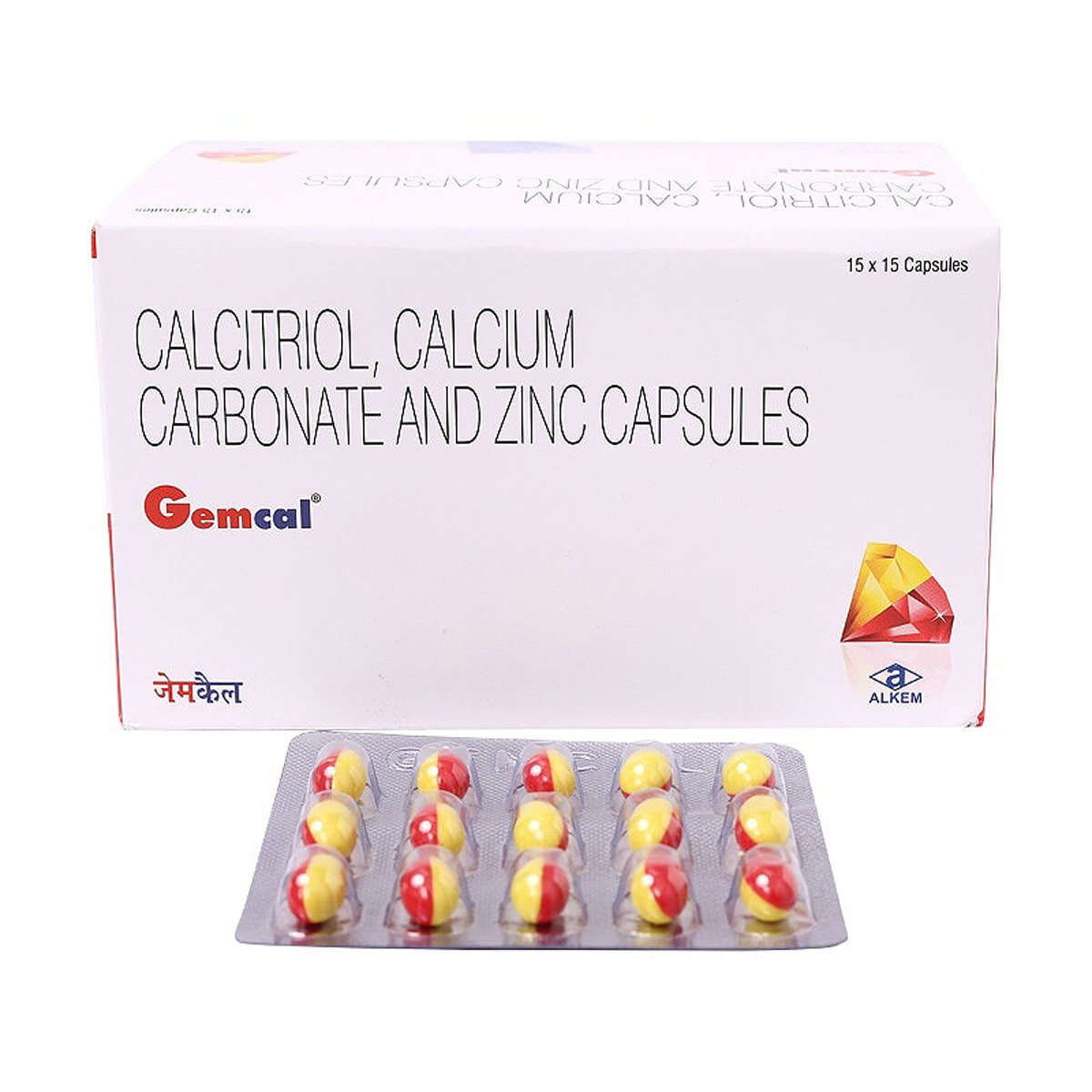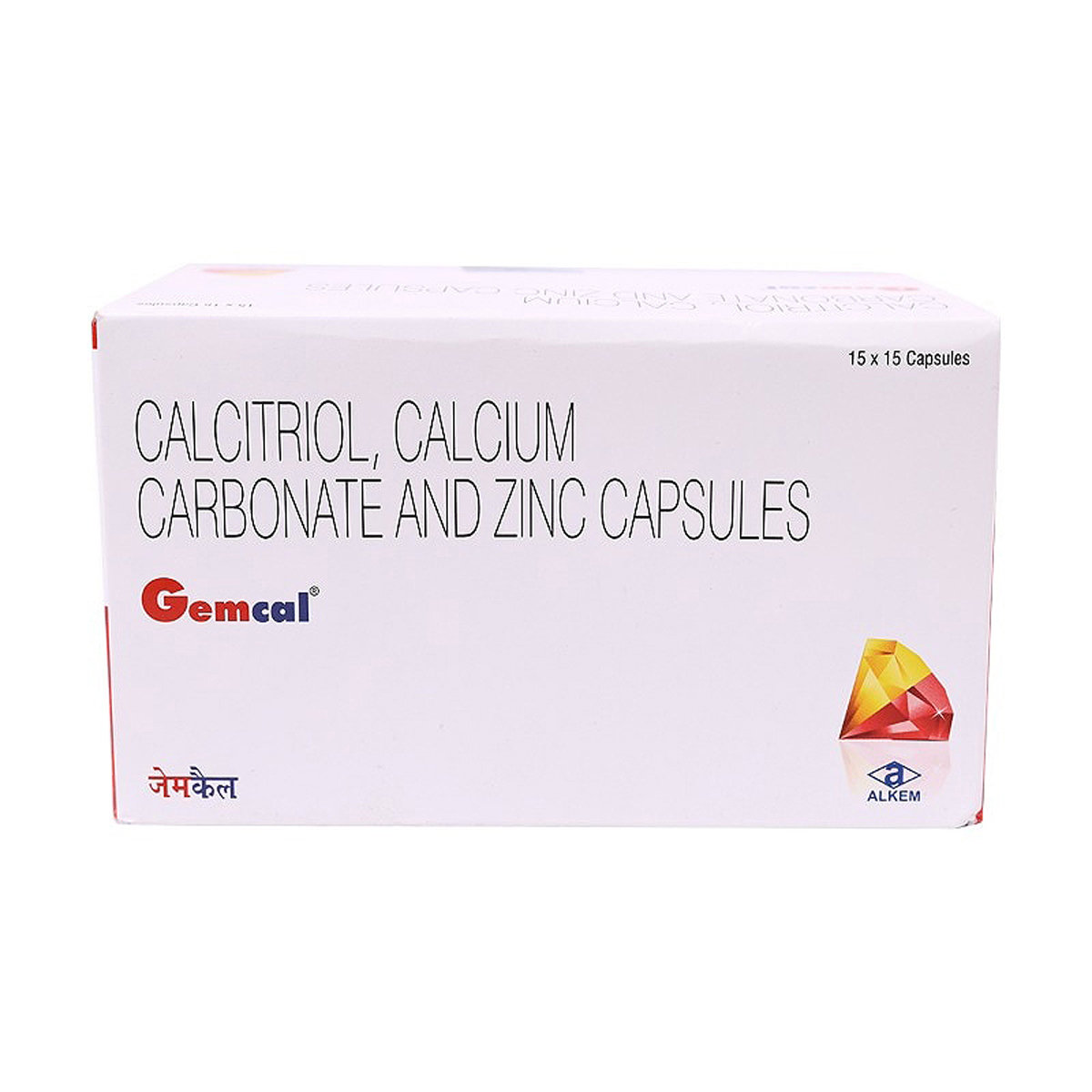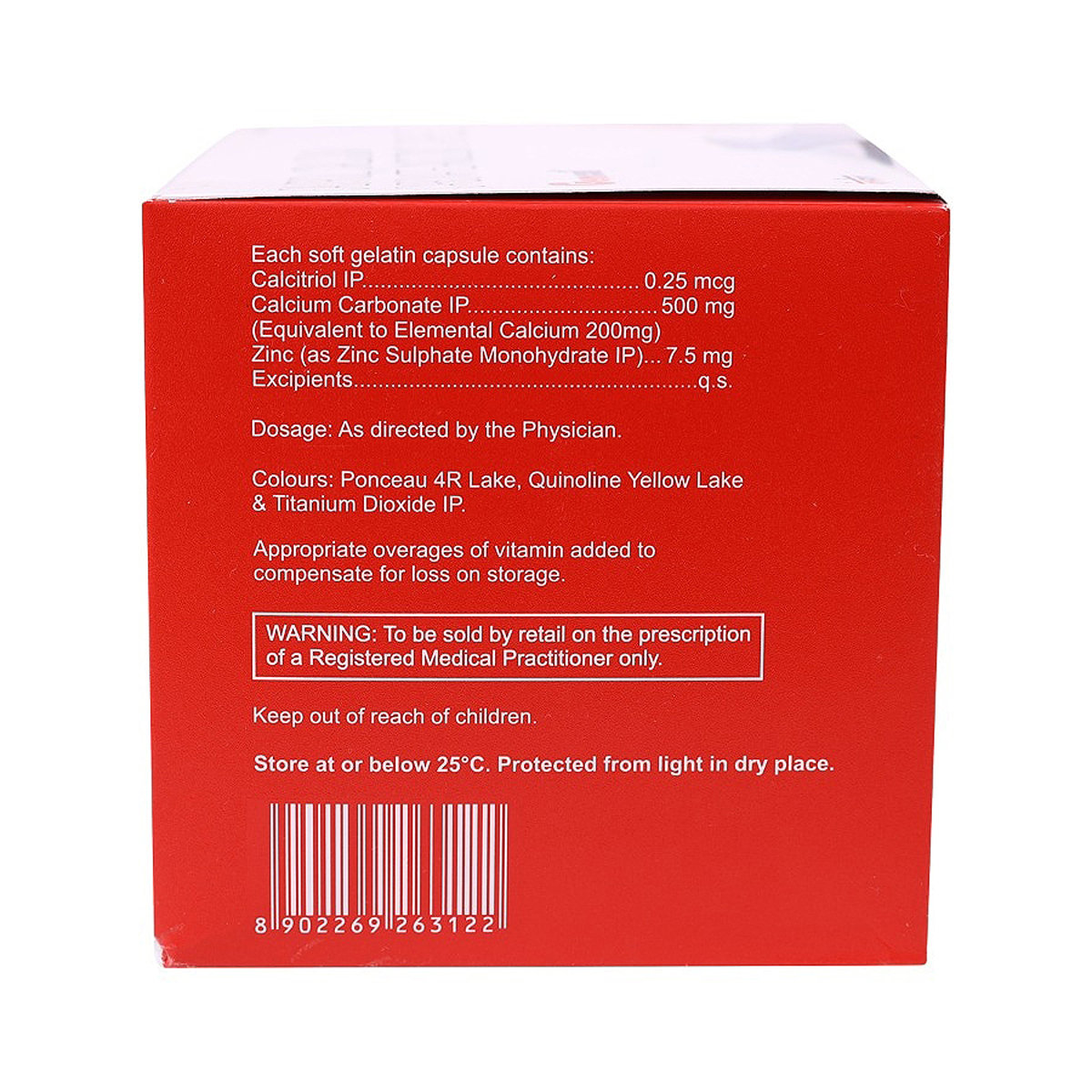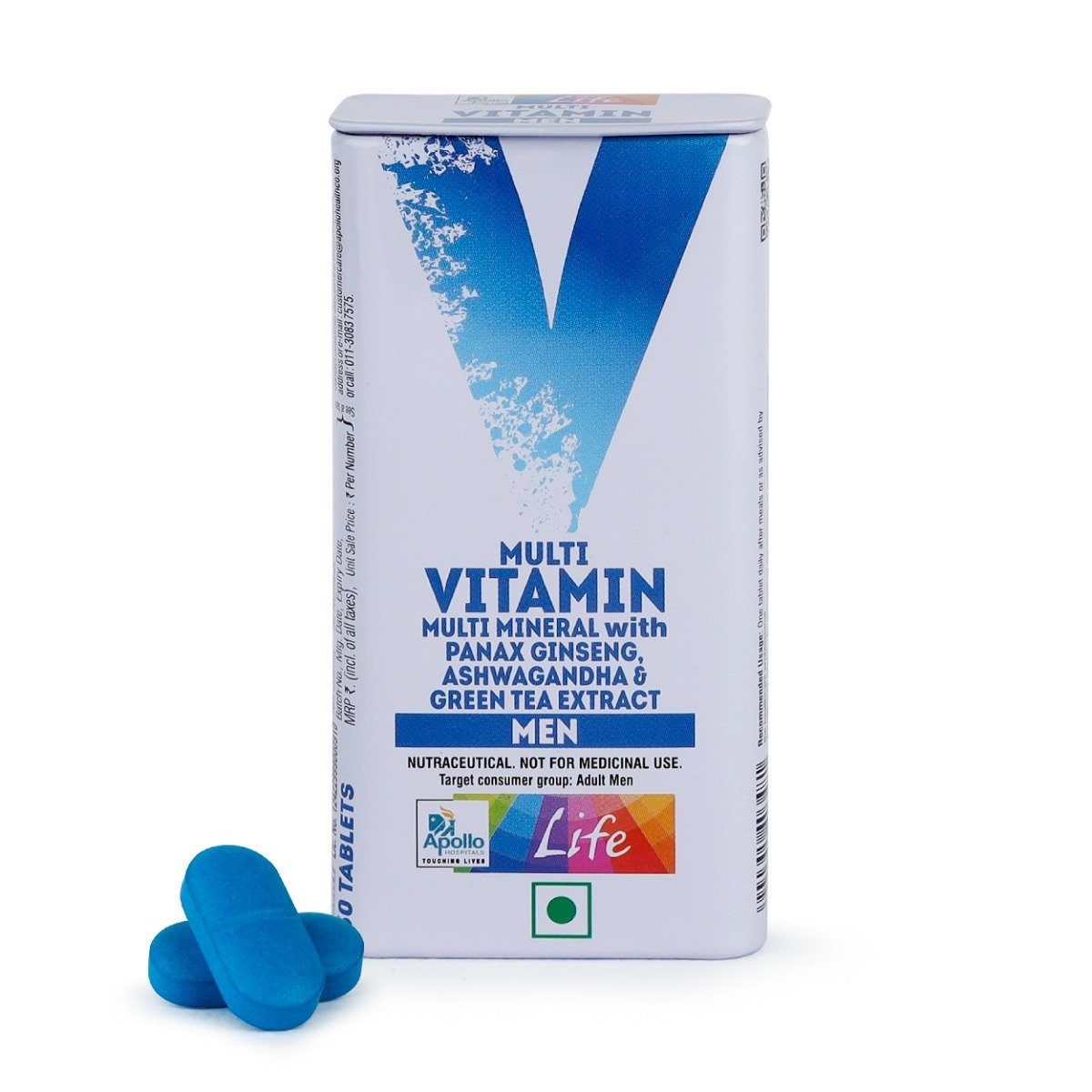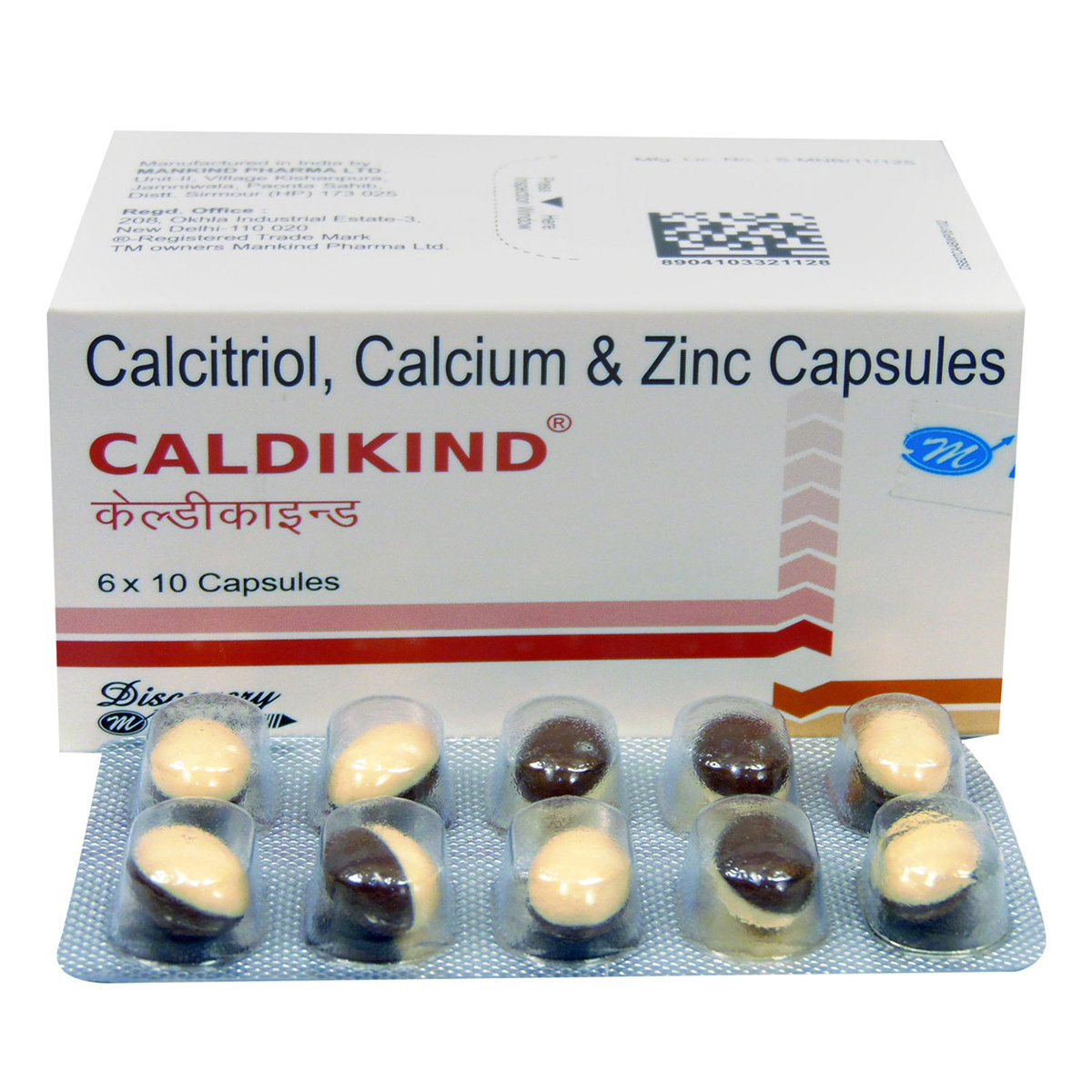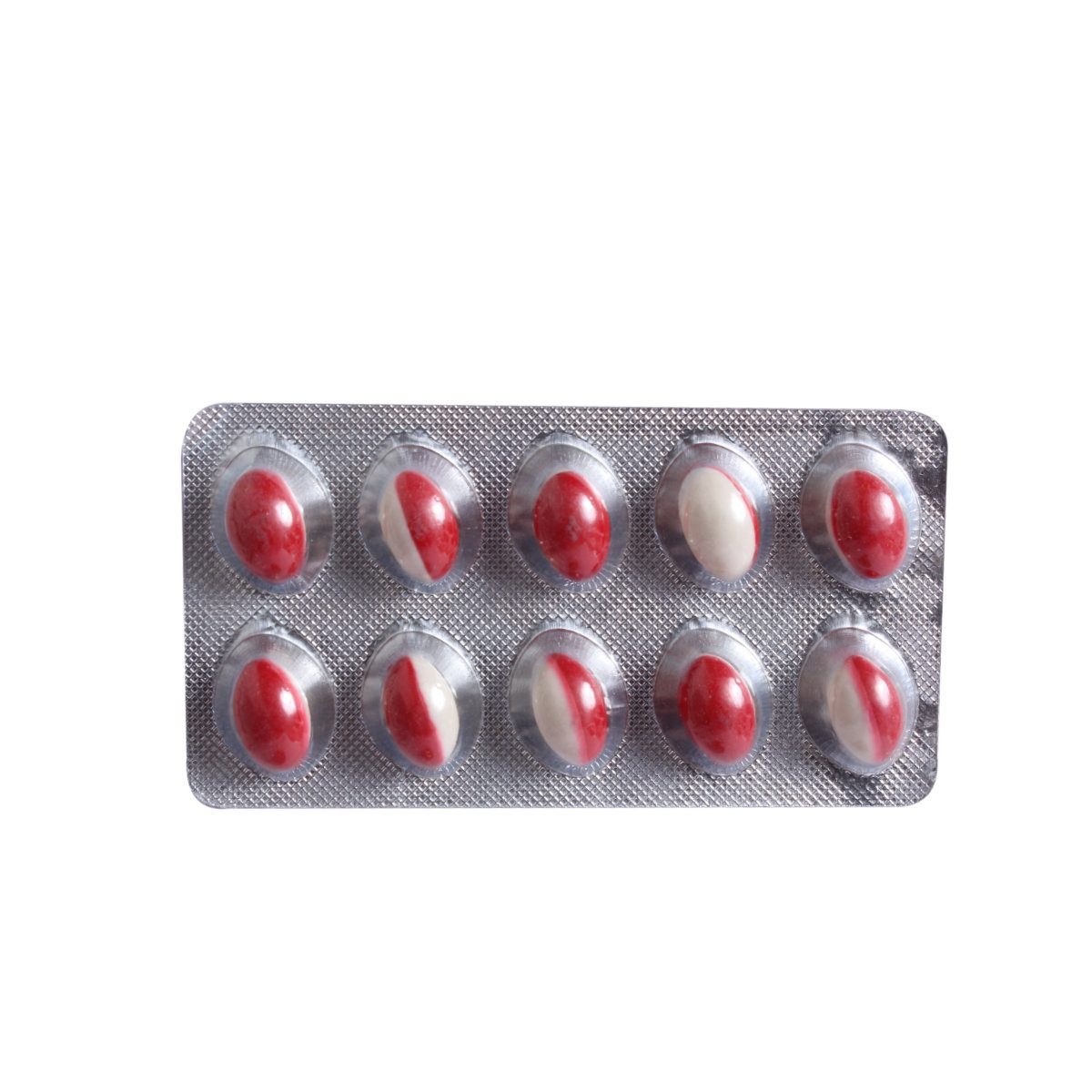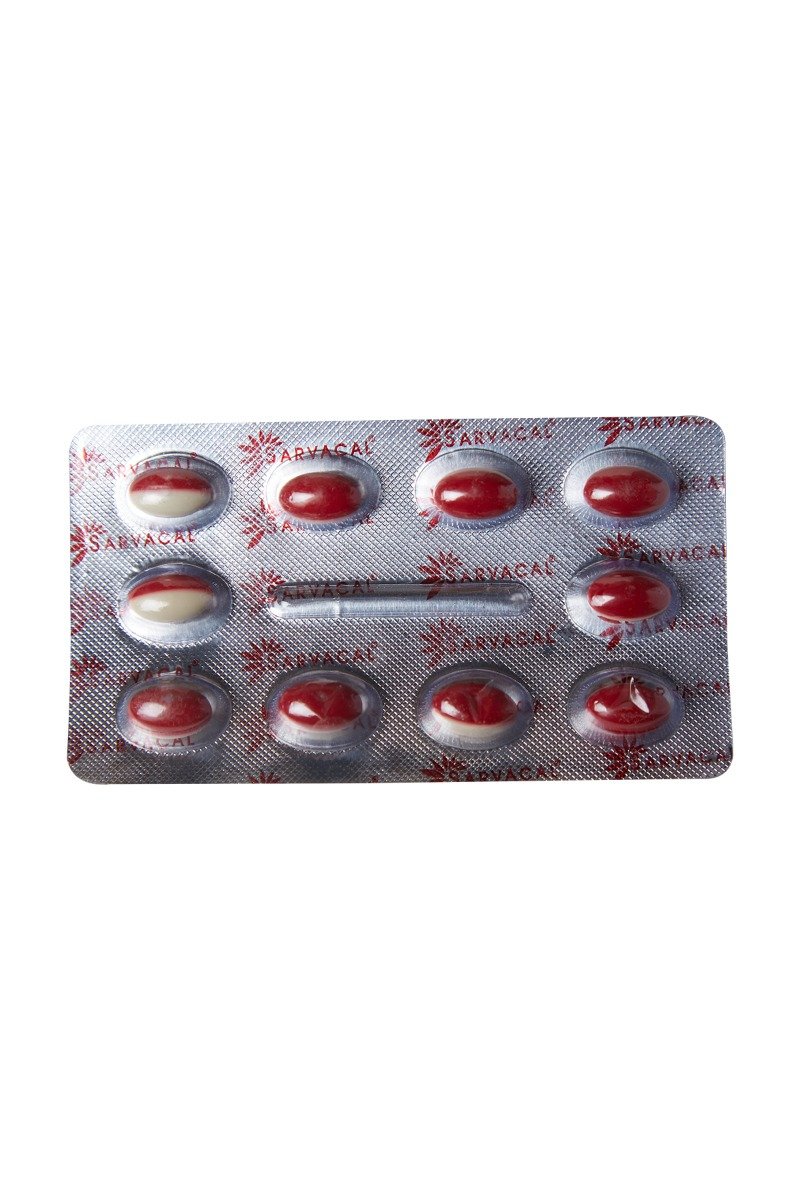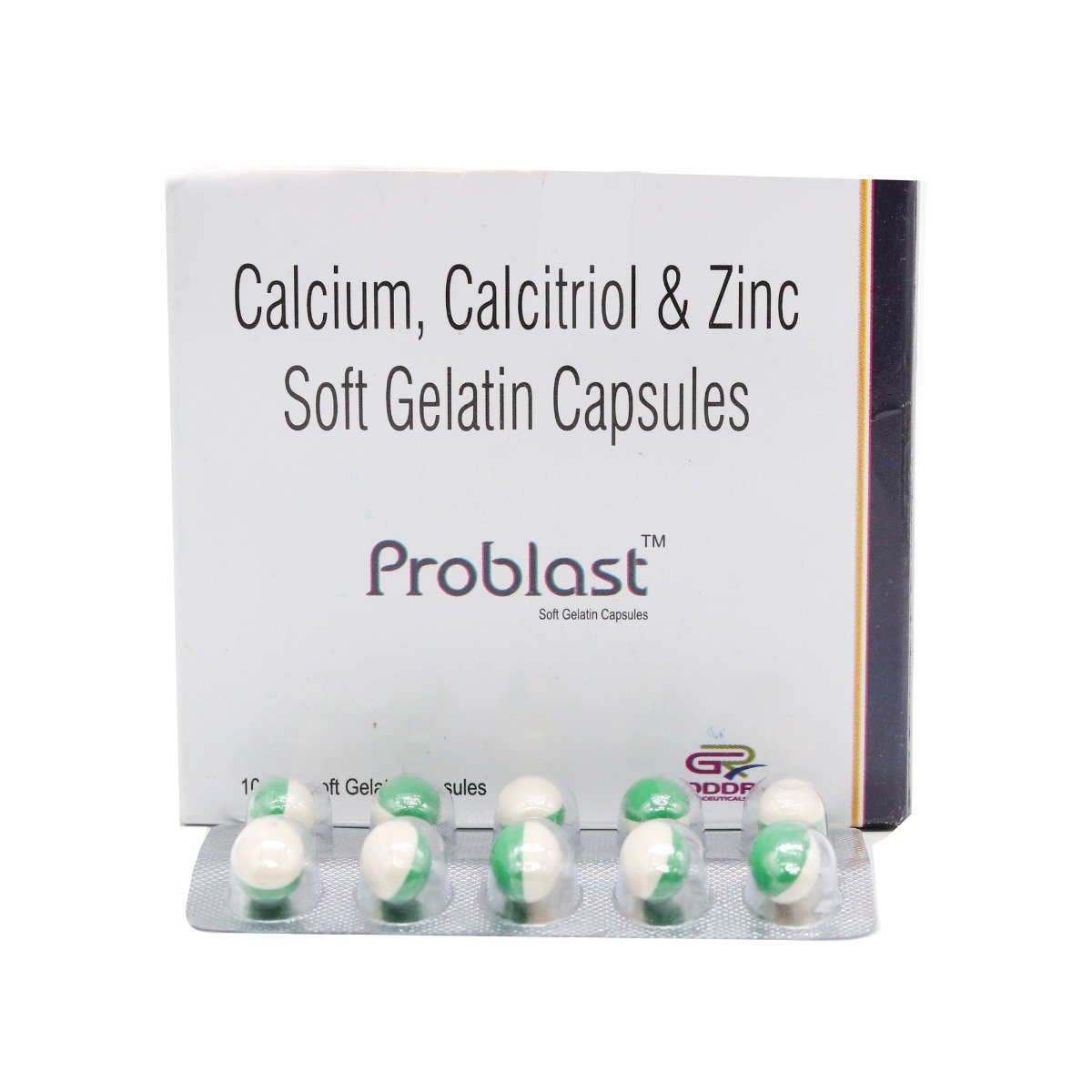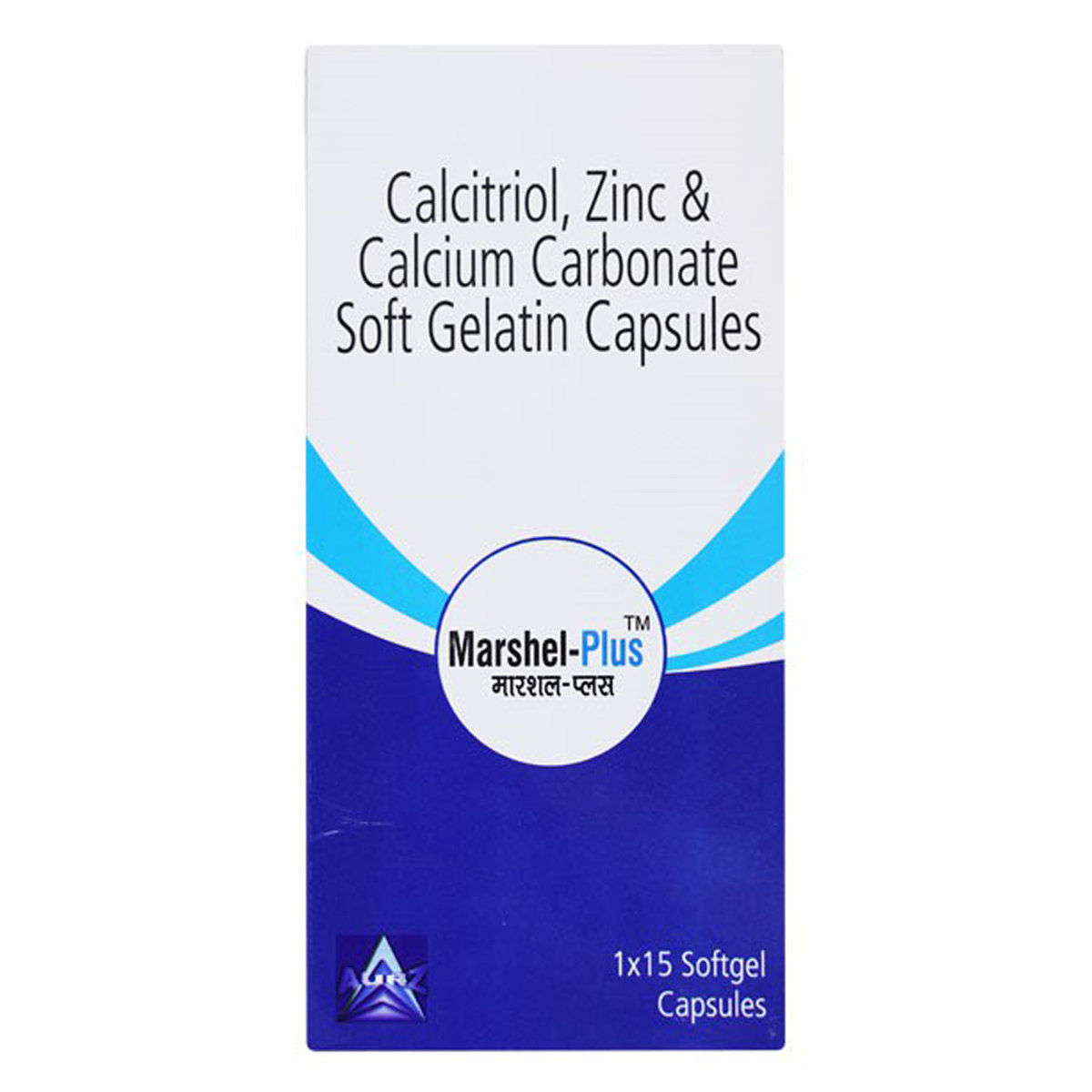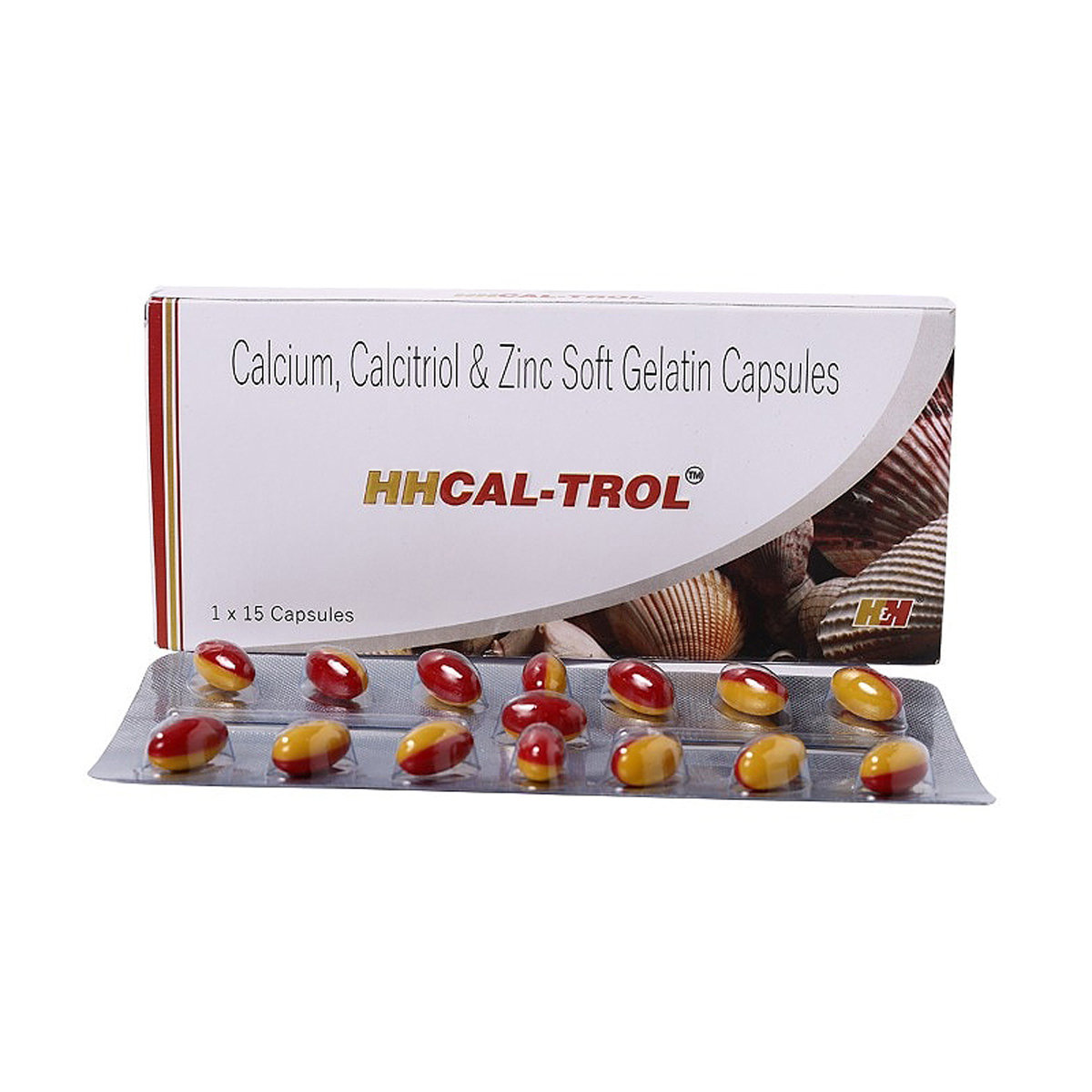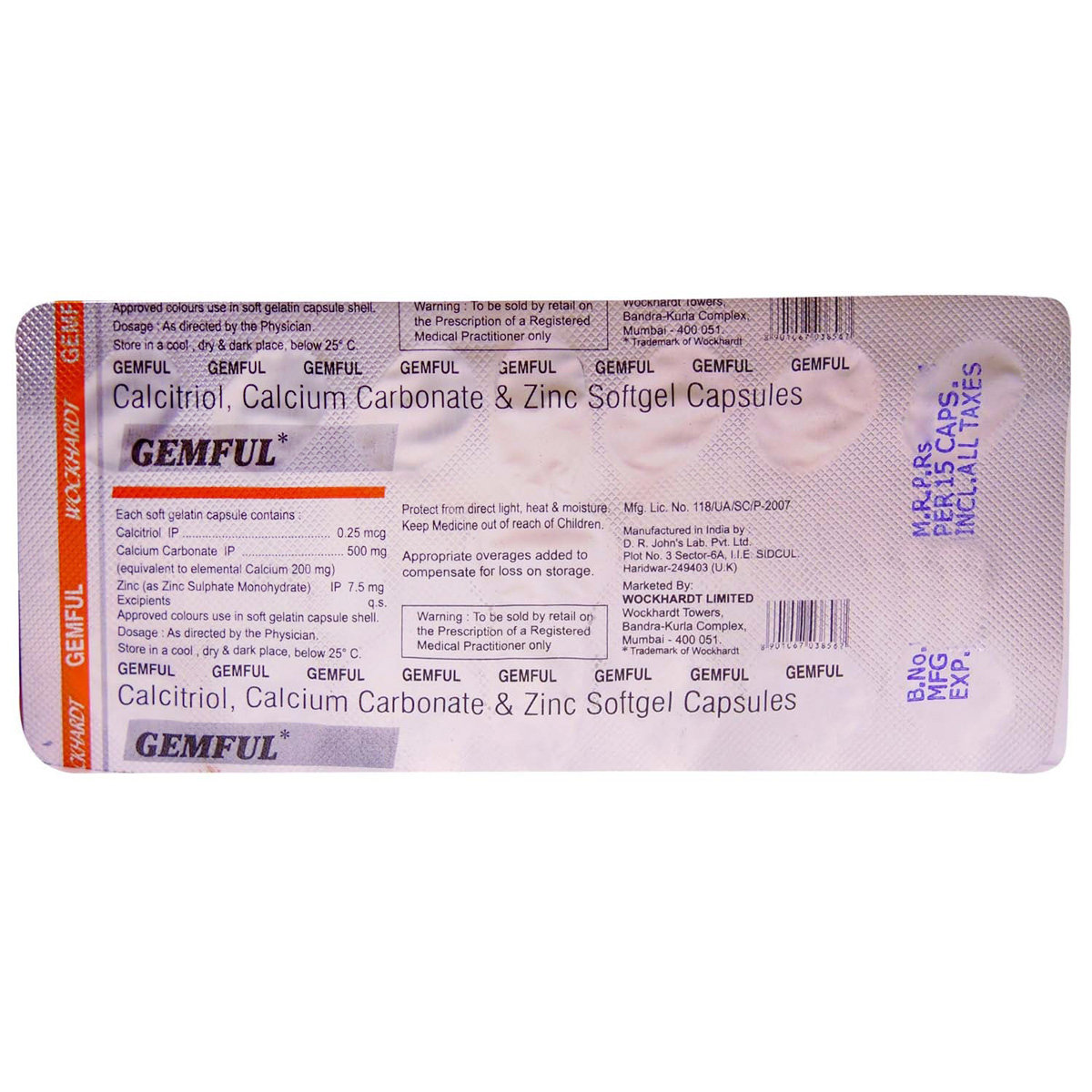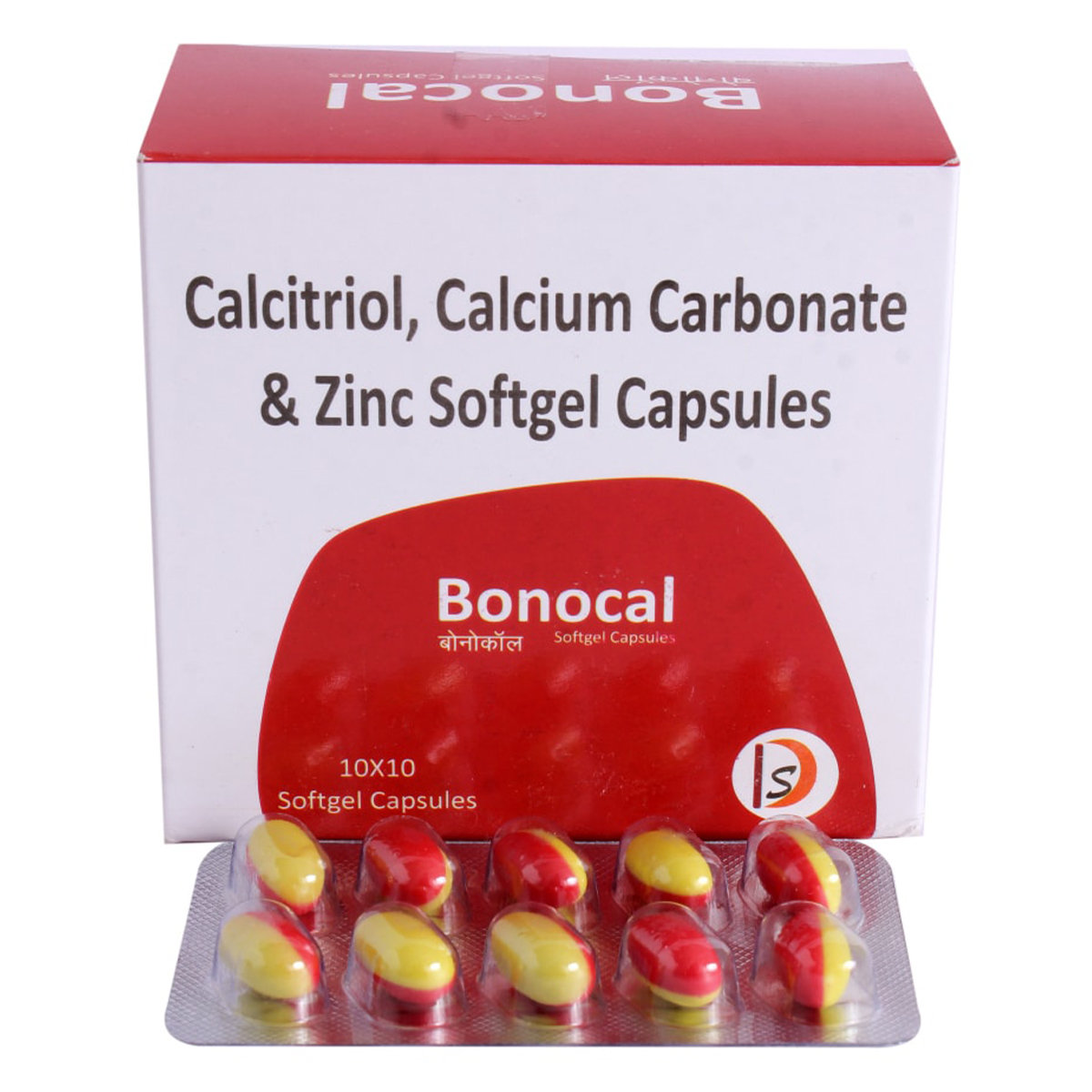Gemcal Capsule 15's
MRP ₹391.5
(Inclusive of all Taxes)
₹58.7 Cashback (15%)
Selected Pack Size:15
15 ₹352.4
(₹23.49 per unit)
In Stock
About Gemcal Capsule
Gemcal Capsule belongs to the class of ‘Multi-minerals’ primarily used to treat low blood calcium levels. Gemcal Capsule effectively treats various conditions caused by low calcium levels in the body, such as osteoporosis (weak and brittle bones), osteomalacia/rickets (weak bones), hypoparathyroidism (low levels of parathyroid hormone), and latent tetany (a muscle disease with low blood calcium levels). Gemcal Capsule can also be given to pregnant, nursing, and postmenopausal women to ensure that they are getting enough calcium. Additionally, Gemcal Capsule is used to treat hyperparathyroidism (overactive parathyroid glands) and metabolic bone disease in people with chronic kidney disease, surgery, or other conditions.
Gemcal Capsule consists of three medicines, namely: Calcium carbonate (mineral), Calcitriol (Vitamin D3), and Zinc (mineral). Calcium is a mineral that is used to prevent or treat a calcium deficiency. It provides essential nutrients to maintain bone formation and maintenance. Calcitriol is a synthetic version of Vitamin D3 and treats calcium deficiency with hypoparathyroidism (the parathyroid glands' decreased activity) and metabolic bone diseases in people with chronic kidney failure. It raises Vitamin D levels and thereby increases calcium levels in the blood. This helps in improving the absorption rate of calcium from the intestine. Zinc is a mineral that has an essential role in bone health. Zinc helps to stimulate osteoblastic bone formation and mineralization.
Take Gemcal Capsule as instructed by your doctor. In some cases, Gemcal Capsule can cause side effects like constipation or stomach upset, nausea, vomiting, loss of appetite, mood changes, weakness, tiredness, fast or pounding heartbeat, bone/muscle pain, and headache. Most of these side effects of Gemcal Capsule do not require medical attention and gradually resolve over time. However, if these side effects persist longer, please consult your doctor.
If you are known to be allergic to Gemcal Capsule or its inactive components, please inform your doctor. Pregnant or breastfeeding women should consult their doctor before taking Gemcal Capsule . Higher doses of Vitamin D than the recommended daily dose should be used in pregnant women only when advised by the doctor. Gemcal Capsule may pass into the breast milk. Hence breastfeeding mothers need to seek medical advice before starting Gemcal Capsule . Gemcal Capsule may contain sugar or sorbitol; hence caution should be taken to have sugar intolerance, diabetes, and phenylketonuria (increased levels of an amino acid called phenylalanine).
Country of origin
Manufacturer/Marketer address
Online payment accepted

secured payment

india's most trusted pharmacy

genuine products
Manufacturer/Marketer :
Consume Type :
Expires on or after :
Return Policy :
Provide Delivery Location
About Gemcal Capsule
Gemcal Capsule belongs to the class of ‘Multi-minerals’ primarily used to treat low blood calcium levels. Gemcal Capsule effectively treats various conditions caused by low calcium levels in the body, such as osteoporosis (weak and brittle bones), osteomalacia/rickets (weak bones), hypoparathyroidism (low levels of parathyroid hormone), and latent tetany (a muscle disease with low blood calcium levels). Gemcal Capsule can also be given to pregnant, nursing, and postmenopausal women to ensure that they are getting enough calcium. Additionally, Gemcal Capsule is used to treat hyperparathyroidism (overactive parathyroid glands) and metabolic bone disease in people with chronic kidney disease, surgery, or other conditions.
Gemcal Capsule consists of three medicines, namely: Calcium carbonate (mineral), Calcitriol (Vitamin D3), and Zinc (mineral). Calcium is a mineral that is used to prevent or treat a calcium deficiency. It provides essential nutrients to maintain bone formation and maintenance. Calcitriol is a synthetic version of Vitamin D3 and treats calcium deficiency with hypoparathyroidism (the parathyroid glands' decreased activity) and metabolic bone diseases in people with chronic kidney failure. It raises Vitamin D levels and thereby increases calcium levels in the blood. This helps in improving the absorption rate of calcium from the intestine. Zinc is a mineral that has an essential role in bone health. Zinc helps to stimulate osteoblastic bone formation and mineralization.
Take Gemcal Capsule as instructed by your doctor. In some cases, Gemcal Capsule can cause side effects like constipation or stomach upset, nausea, vomiting, loss of appetite, mood changes, weakness, tiredness, fast or pounding heartbeat, bone/muscle pain, and headache. Most of these side effects of Gemcal Capsule do not require medical attention and gradually resolve over time. However, if these side effects persist longer, please consult your doctor.
If you are known to be allergic to Gemcal Capsule or its inactive components, please inform your doctor. Pregnant or breastfeeding women should consult their doctor before taking Gemcal Capsule . Higher doses of Vitamin D than the recommended daily dose should be used in pregnant women only when advised by the doctor. Gemcal Capsule may pass into the breast milk. Hence breastfeeding mothers need to seek medical advice before starting Gemcal Capsule . Gemcal Capsule may contain sugar or sorbitol; hence caution should be taken to have sugar intolerance, diabetes, and phenylketonuria (increased levels of an amino acid called phenylalanine).
Uses of Gemcal Capsule
Key Benefits
Gemcal Capsule is a combination of three drugs, namely; Calcium carbonate (mineral), Calcitriol (Vitamin D3) and Zinc (mineral) used to treat low blood calcium levels and various associated conditions caused by low calcium levels in the body, such as osteoporosis (weak and brittle bones), osteomalacia/rickets (weak bones), hypoparathyroidism (low levels of parathyroid hormone), and tetany (a muscle disease with low blood calcium levels). Calcium carbonate is a mineral and prevents or treats calcium deficiency. It helps to maintain bone and teeth health. Calcitriol, a synthetic form of Vitamin D3, treats calcium deficiency with hypoparathyroidism (the parathyroid glands' decreased activity) and metabolic bone diseases in people with chronic kidney failure. Zinc is an important mineral in the normal growth and development of the skeletal system. It helps maintain bone density by increasing protein synthetase, which helps protect bone health.
Directions for Use
Storage
Side Effects of Gemcal Capsule
- Nausea
- Vomiting
- Headache
- Stomach pain
- Constipation
- Mood changes
- Tiredness/ weakness
- Fast or pounding heartbeat
Drug Warnings
If you are known to be allergic to Gemcal Capsule or any other medicines, please tell your doctor. If you are pregnant or planning to become pregnant, it is advised to inform your doctor before using Gemcal Capsule . Higher doses of Vitamin D than the recommended daily dose should be used in pregnant women only when advised by the doctor. Calcitriol in higher doses may harm the fetus. Gemcal Capsule may pass into the breast milk; hence consult your doctor before taking Gemcal Capsule if you are a breastfeeding mother. Gemcal Capsule should be used with caution in children and only if recommended by a doctor. Calcitriol in Gemcal Capsule can affect growth in children. Inform your doctor if your child is not growing at a normal rate while using Gemcal Capsule . Gemcal Capsule is not recommended if you have hypercalcemia (high calcium levels), metastatic calcification (extra deposits of calcium in the body), hypervitaminosis D (high vitamin D levels), and malabsorption syndrome (difficulty absorbing nutrition from food). Inform your doctor before taking Gemcal Capsule if you have any heart/kidney/liver/blood vessel diseases, kidney stones, sarcoidosis (growth of inflammatory cells in different parts of the body), Crohn's disease (inflammatory bowel disease), Whipple's disease (bacterial infection affecting joints and digestive system), achlorhydria (little or no stomach acid), low levels of bile, and phosphate imbalance. Gemcal Capsule contains sugar or sorbitol; hence caution should be taken to have an intolerance to sugars, diabetes, and phenylketonuria (increased levels of an amino acid called phenylalanine).
Drug Interactions
Drug-Drug Interactions: Gemcal Capsule may interact with anti-cancer medication (estramustine), Cholestyramine (cholesterol-lowering agent), Digitalis (used to treat heart problems), medicines to treat bacterial infections such as Ciprofloxacin, Levofloxacin, Gatifloxacin, Sparfloxacin, Ofloxacin; Ketoconazole (treat fungal infections).
Drug-Food Interactions: Avoid or reduce the intake of caffeine, soft drinks, and alcohol that inhibit calcium absorption.
Drug-Disease Interactions: Inform your doctor if you have myeloma, bone metastases, primary hyperparathyroidism, Nephrolithiasis/nephrocalcinosis., Renal failure, or Hypervitaminosis D.
Drug-Drug Interactions Checker List
- ESTRAMUSTINE
- CHOLESTYRAMINE
- DIGITALIS
- CIPROFLOXACIN
- LEVOFLOXACIN
- GATIFLOXACIN
- SPARFLOXACIN
- OFLOXACIN
- KETOCONAZOLE
Habit Forming
Diet & Lifestyle Advise
- Include dairy products like milk, yogurt, cheese, or milk-based custard in your diet.
- Eat daily a serving of broccoli, cabbage, bok choy, spinach, and other green leafy vegetables.
- Snack on calcium-rich nuts like Brazil nuts or almonds.
- Sprinkle sesame seeds over your food, vegetables, and salads. Sesame seeds are high in calcium.
- Avoid or reduce the intake of caffeine, soft drinks, and alcohol that inhibit calcium absorption.
- Replace the meat with tofu or tempeh for extra calcium in your food.
Special Advise
- Clinical monitoring of serum electrolyte concentrations and cardiac function is recommended.
- A low phosphate diet is recommended to control serum phosphorus levels in patients undergoing dialysis.
Disease/Condition Glossary
Osteoporosis: It is a bone disease that weakens and brittle bones by decreasing bone density. As bones become less dense, they weaken and are more likely to break. Breaking a bone is a serious complication of osteoporosis, especially with older patients. Women are much more likely to develop osteoporosis than are men. Signs and symptoms include back pain caused by a fractured or collapsed vertebra, loss of height over time, a stooped posture, a bone that breaks much more easily than expected.
Osteomalacia/Rickets: A bone disease caused by softening and weakening bones in children due to inadequate vitamin D. Adults can experience a similar condition known as osteomalacia. It causes bone pain, poor growth, and soft, weak bones that can lead to bone deformities.
Tetany: A disease condition due to low levels of calcium (hypocalcemia) in the body causes cramps and spasms in the hands, feet, and larynx (voice box).
Hypoparathyroidism: It is a disease characterized by low levels of parathyroid hormone. This can cause low calcium levels and trigger tetany.
FAQs
Disclaimer
Alcohol
Safe if prescribed
Drinking alcohol can affect calcium absorption; hence it is advised to limit the alcohol intake while using Gemcal Capsule .
Pregnancy
Consult your doctor
During pregnancy, use higher doses of Gemcal Capsule than the daily dietary allowance only when advised by the doctor. Calcitriol in higher doses may harm the fetus. Your doctor will weigh the potential risks and benefits before recommending Gemcal Capsule .
Breast Feeding
Consult your doctor
Consult your doctor before taking Gemcal Capsule if you are breastfeeding. Gemcal Capsule can pass into the breast milk. If Gemcal Capsule is used during breastfeeding, please monitor the mother and the infant's serum calcium levels.
Driving
Safe if prescribed
No interaction was found/established.
Liver
Consult your doctor
Let your doctor know if you have any history of liver diseases before taking Gemcal Capsule . Hepatic impairment/liver disease can alter the metabolic and therapeutic activity of certain Vitamin D forms.
Kidney
Consult your doctor
It is advised to seek doctor advice before starting Gemcal Capsule if you have kidney diseases like kidney stones or undergoing dialysis. Calcitriol in Gemcal Capsule increases inorganic phosphate levels in serum; hence caution should be taken in patients undergoing dialysis to maintain adequate phosphorus levels and avoid ectopic calcification (calcium deposition).
Children
Safe if prescribed
Gemcal Capsule should be used with caution in children and only if recommended by a doctor.
Uses of Gemcal Capsule
Key Benefits
Gemcal Capsule is a combination of three drugs, namely; Calcium carbonate (mineral), Calcitriol (Vitamin D3) and Zinc (mineral) used to treat low blood calcium levels and various associated conditions caused by low calcium levels in the body, such as osteoporosis (weak and brittle bones), osteomalacia/rickets (weak bones), hypoparathyroidism (low levels of parathyroid hormone), and tetany (a muscle disease with low blood calcium levels). Calcium carbonate is a mineral and prevents or treats calcium deficiency. It helps to maintain bone and teeth health. Calcitriol, a synthetic form of Vitamin D3, treats calcium deficiency with hypoparathyroidism (the parathyroid glands' decreased activity) and metabolic bone diseases in people with chronic kidney failure. Zinc is an important mineral in the normal growth and development of the skeletal system. It helps maintain bone density by increasing protein synthetase, which helps protect bone health.
Directions for Use
Storage
Drug Warnings
If you are known to be allergic to Gemcal Capsule or any other medicines, please tell your doctor. If you are pregnant or planning to become pregnant, it is advised to inform your doctor before using Gemcal Capsule . Higher doses of Vitamin D than the recommended daily dose should be used in pregnant women only when advised by the doctor. Calcitriol in higher doses may harm the fetus. Gemcal Capsule may pass into the breast milk; hence consult your doctor before taking Gemcal Capsule if you are a breastfeeding mother. Gemcal Capsule should be used with caution in children and only if recommended by a doctor. Calcitriol in Gemcal Capsule can affect growth in children. Inform your doctor if your child is not growing at a normal rate while using Gemcal Capsule . Gemcal Capsule is not recommended if you have hypercalcemia (high calcium levels), metastatic calcification (extra deposits of calcium in the body), hypervitaminosis D (high vitamin D levels), and malabsorption syndrome (difficulty absorbing nutrition from food). Inform your doctor before taking Gemcal Capsule if you have any heart/kidney/liver/blood vessel diseases, kidney stones, sarcoidosis (growth of inflammatory cells in different parts of the body), Crohn's disease (inflammatory bowel disease), Whipple's disease (bacterial infection affecting joints and digestive system), achlorhydria (little or no stomach acid), low levels of bile, and phosphate imbalance. Gemcal Capsule contains sugar or sorbitol; hence caution should be taken to have an intolerance to sugars, diabetes, and phenylketonuria (increased levels of an amino acid called phenylalanine).
Therapeutic Class
Drug-Drug Interactions Checker List
- ESTRAMUSTINE
- CHOLESTYRAMINE
- DIGITALIS
- CIPROFLOXACIN
- LEVOFLOXACIN
- GATIFLOXACIN
- SPARFLOXACIN
- OFLOXACIN
- KETOCONAZOLE
Diet & Lifestyle Advise
- Include dairy products like milk, yogurt, cheese, or milk-based custard in your diet.
- Eat daily a serving of broccoli, cabbage, bok choy, spinach, and other green leafy vegetables.
- Snack on calcium-rich nuts like Brazil nuts or almonds.
- Sprinkle sesame seeds over your food, vegetables, and salads. Sesame seeds are high in calcium.
- Avoid or reduce the intake of caffeine, soft drinks, and alcohol that inhibit calcium absorption.
- Replace the meat with tofu or tempeh for extra calcium in your food.
Habit Forming
Side Effects of Gemcal Capsule
- Nausea
- Vomiting
- Headache
- Stomach pain
- Constipation
- Mood changes
- Tiredness/ weakness
- Fast or pounding heartbeat
Special Advise
- Clinical monitoring of serum electrolyte concentrations and cardiac function is recommended.
- A low phosphate diet is recommended to control serum phosphorus levels in patients undergoing dialysis.
Disease/Condition Glossary
Osteoporosis: It is a bone disease that weakens and brittle bones by decreasing bone density. As bones become less dense, they weaken and are more likely to break. Breaking a bone is a serious complication of osteoporosis, especially with older patients. Women are much more likely to develop osteoporosis than are men. Signs and symptoms include back pain caused by a fractured or collapsed vertebra, loss of height over time, a stooped posture, a bone that breaks much more easily than expected.
Osteomalacia/Rickets: A bone disease caused by softening and weakening bones in children due to inadequate vitamin D. Adults can experience a similar condition known as osteomalacia. It causes bone pain, poor growth, and soft, weak bones that can lead to bone deformities.
Tetany: A disease condition due to low levels of calcium (hypocalcemia) in the body causes cramps and spasms in the hands, feet, and larynx (voice box).
Hypoparathyroidism: It is a disease characterized by low levels of parathyroid hormone. This can cause low calcium levels and trigger tetany.
All Substitutes & Brand Comparisons
RX
Caldikind Capsule 10's
Mankind Pharma Pvt Ltd
₹101
(₹9.09 per unit)
61% CHEAPERRX
Ozocal Capsule 10's
Ozone Pharmaceuticals Ltd
₹118.5
(₹10.67 per unit)
54% CHEAPERRX
Vegacal Capsule 10's
Olamic Pharma Pvt Ltd
₹126.5
(₹11.39 per unit)
51% CHEAPER

Have a query?
Recommended for a 30-day course: 2 Strips

